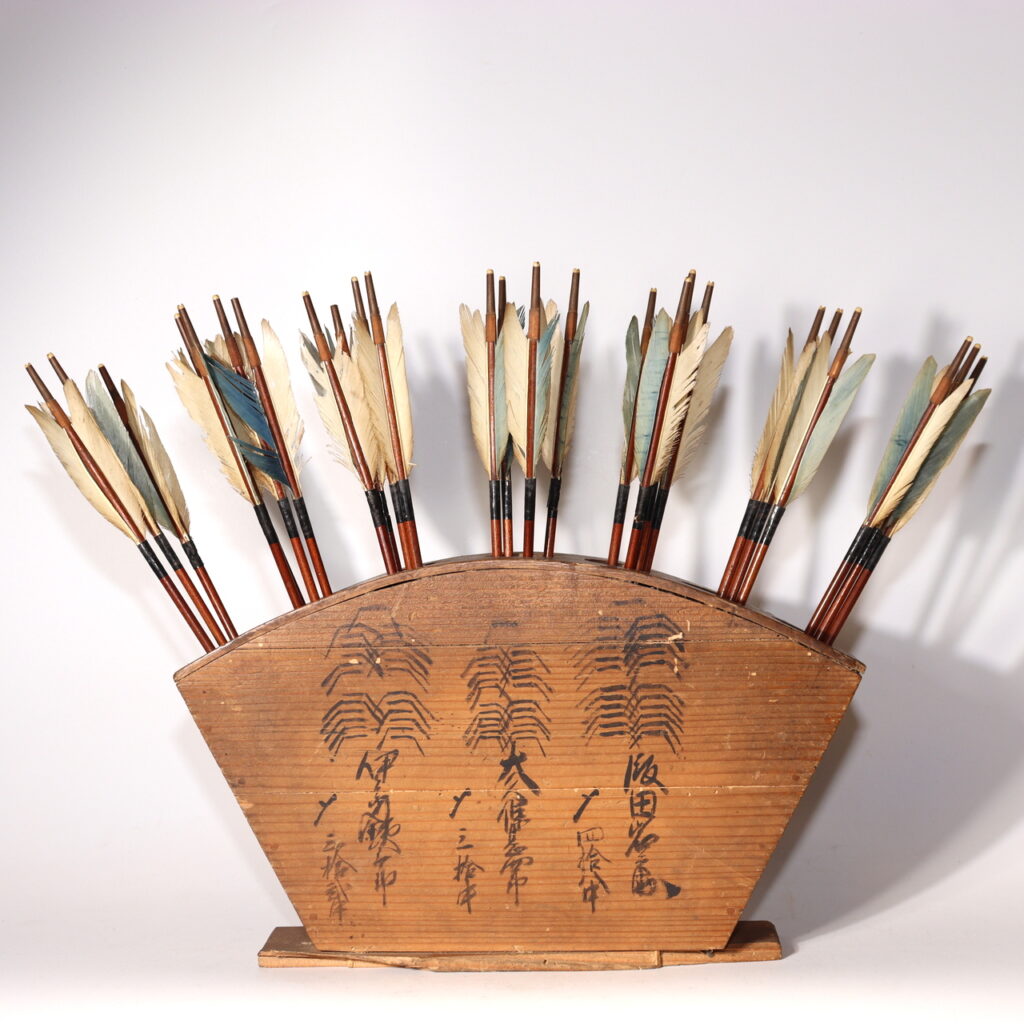
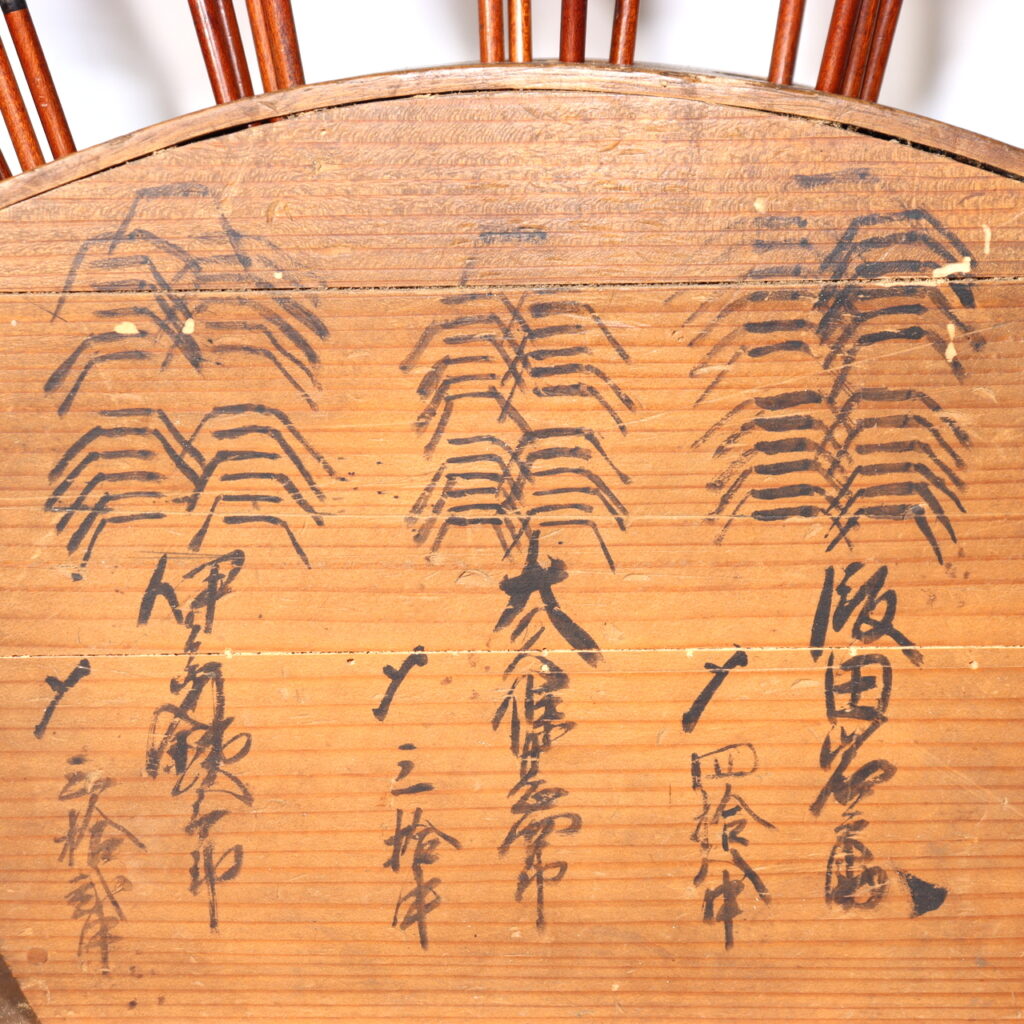
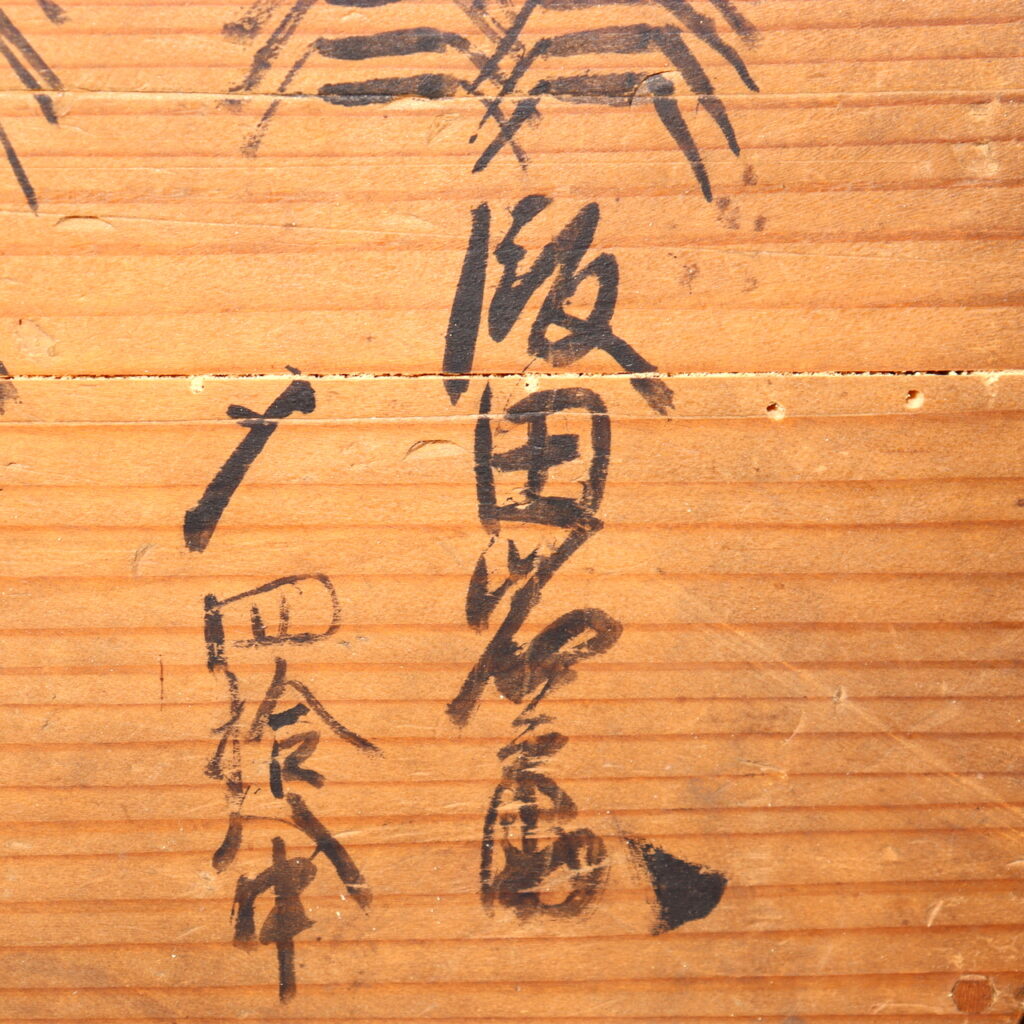
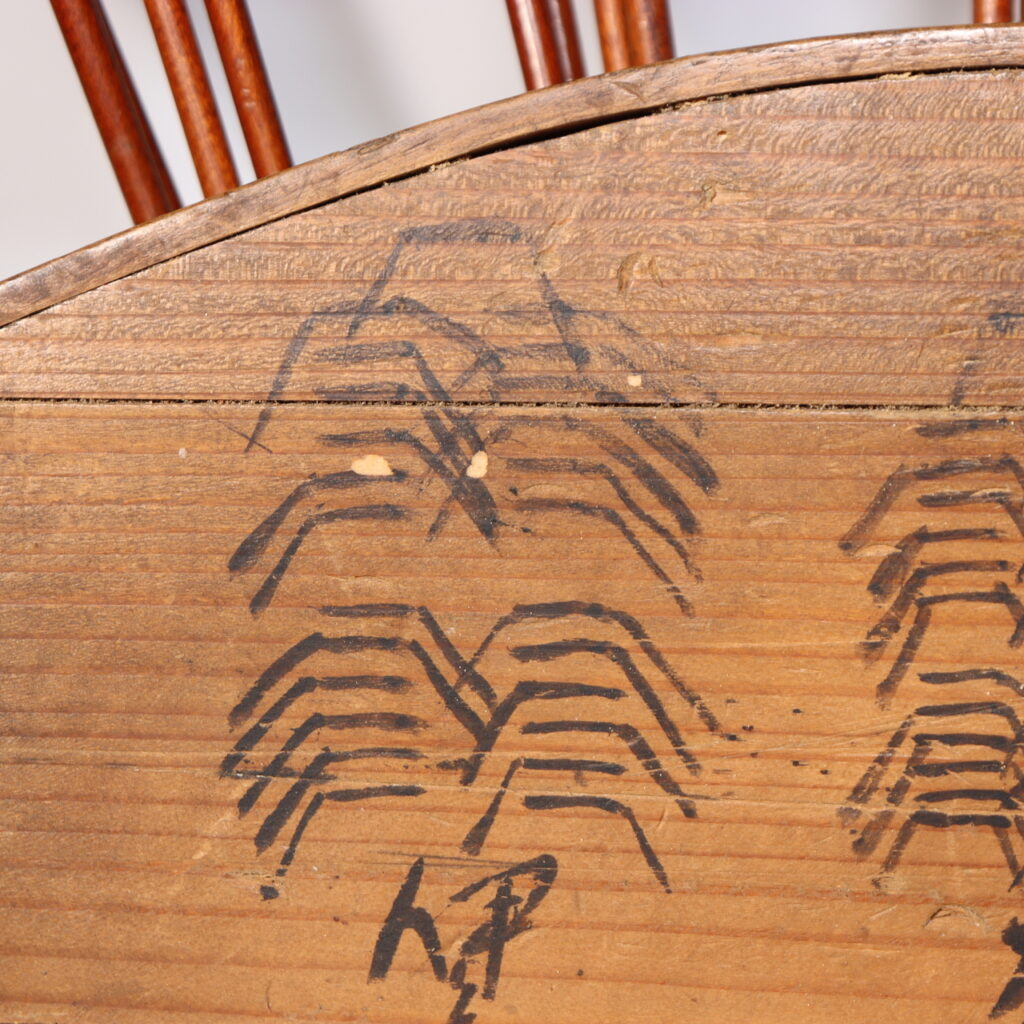
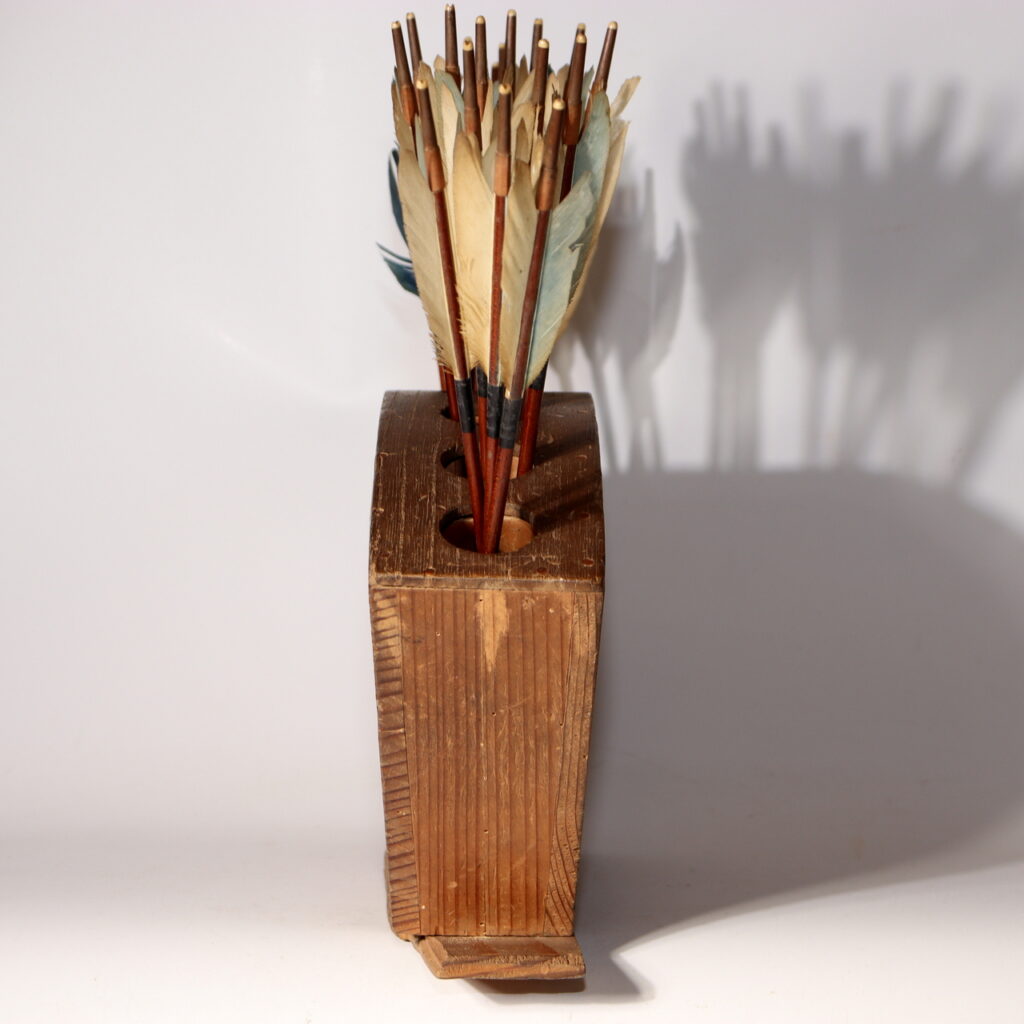
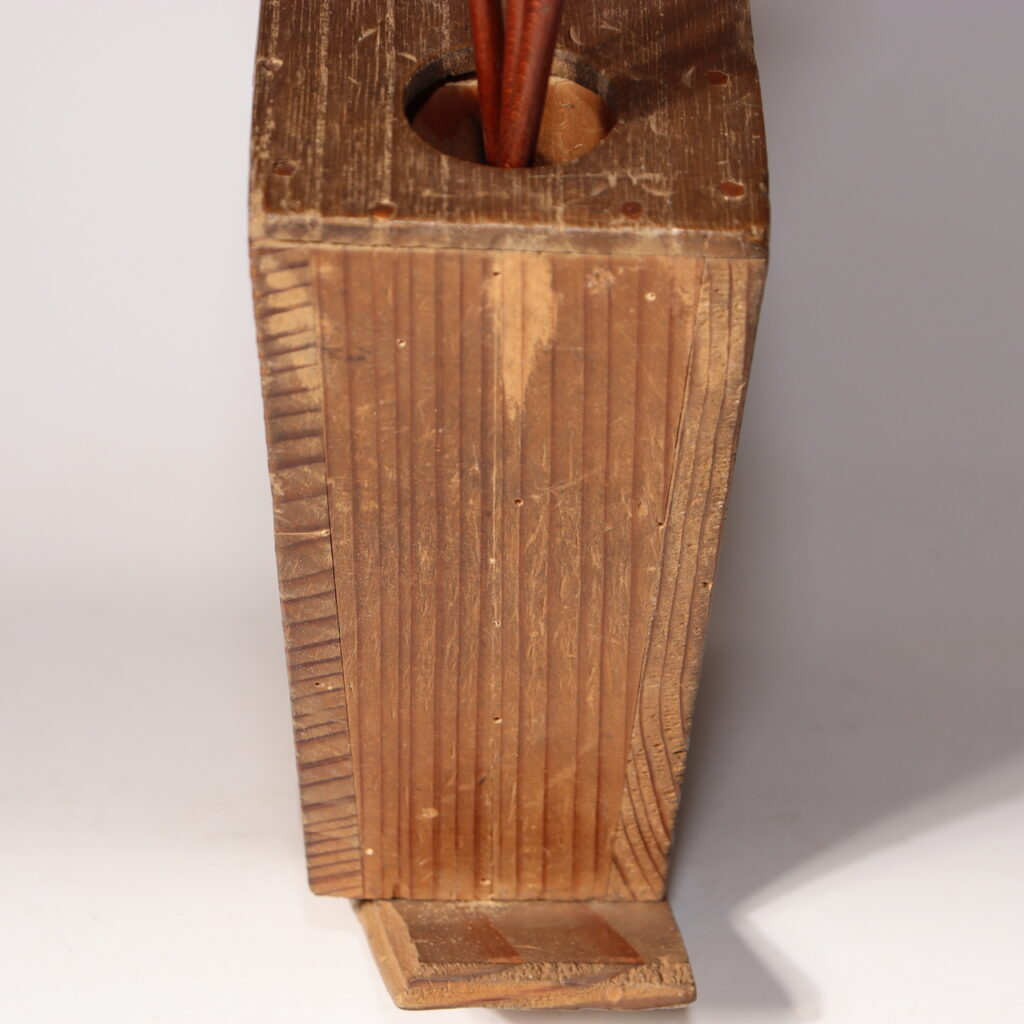
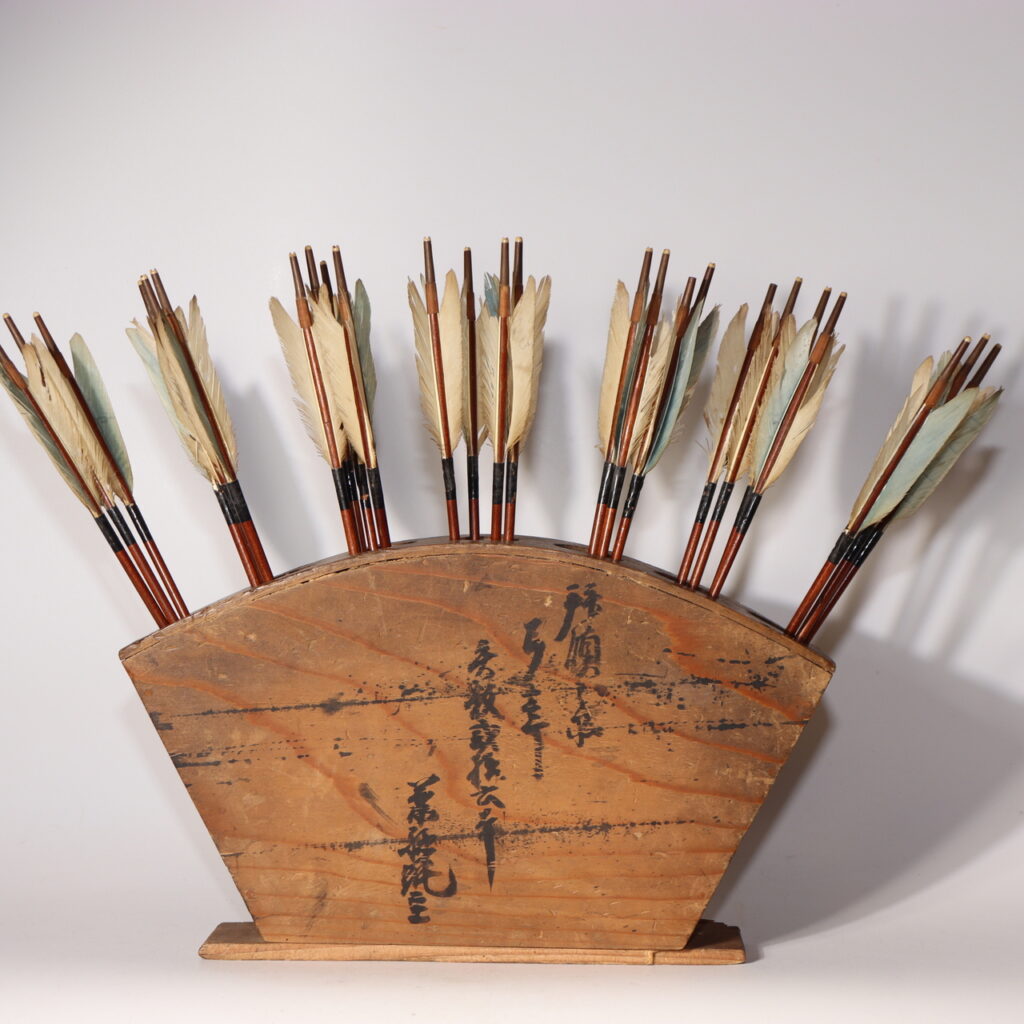
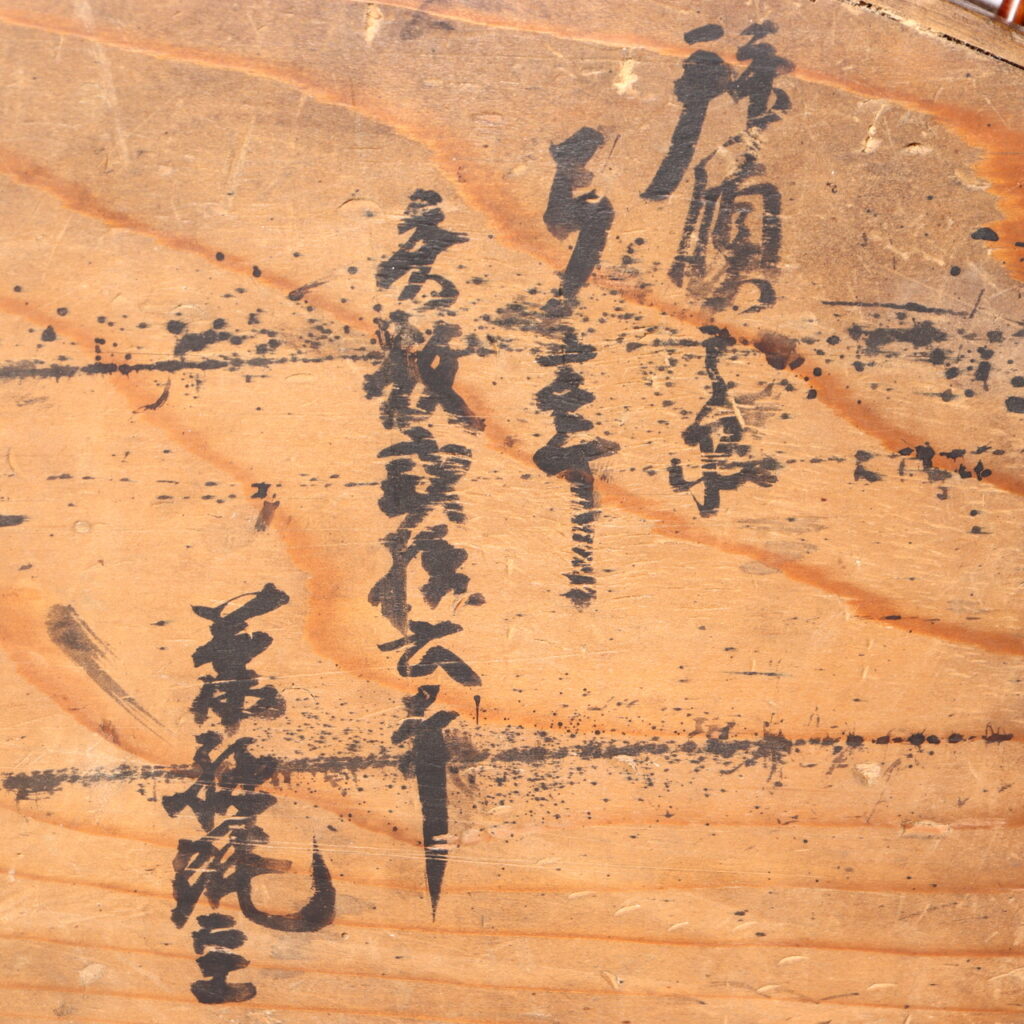
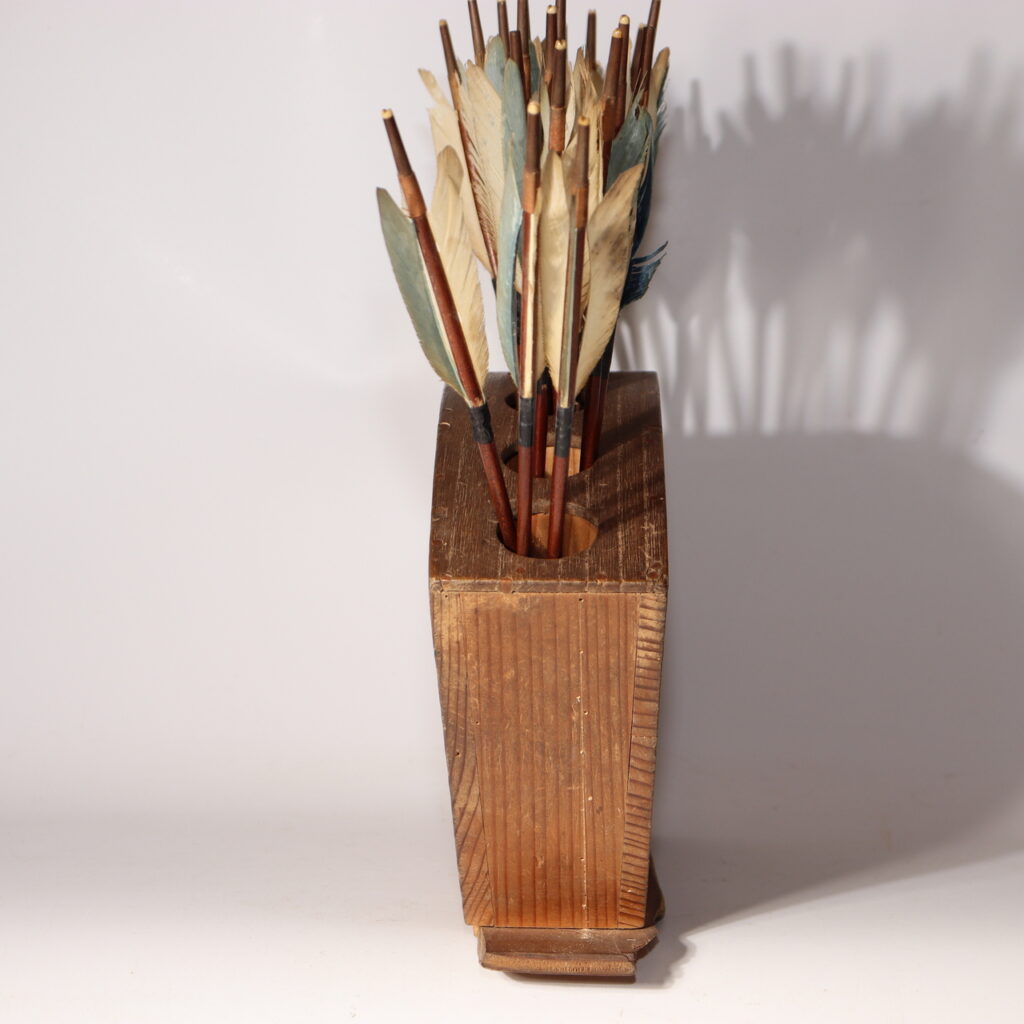
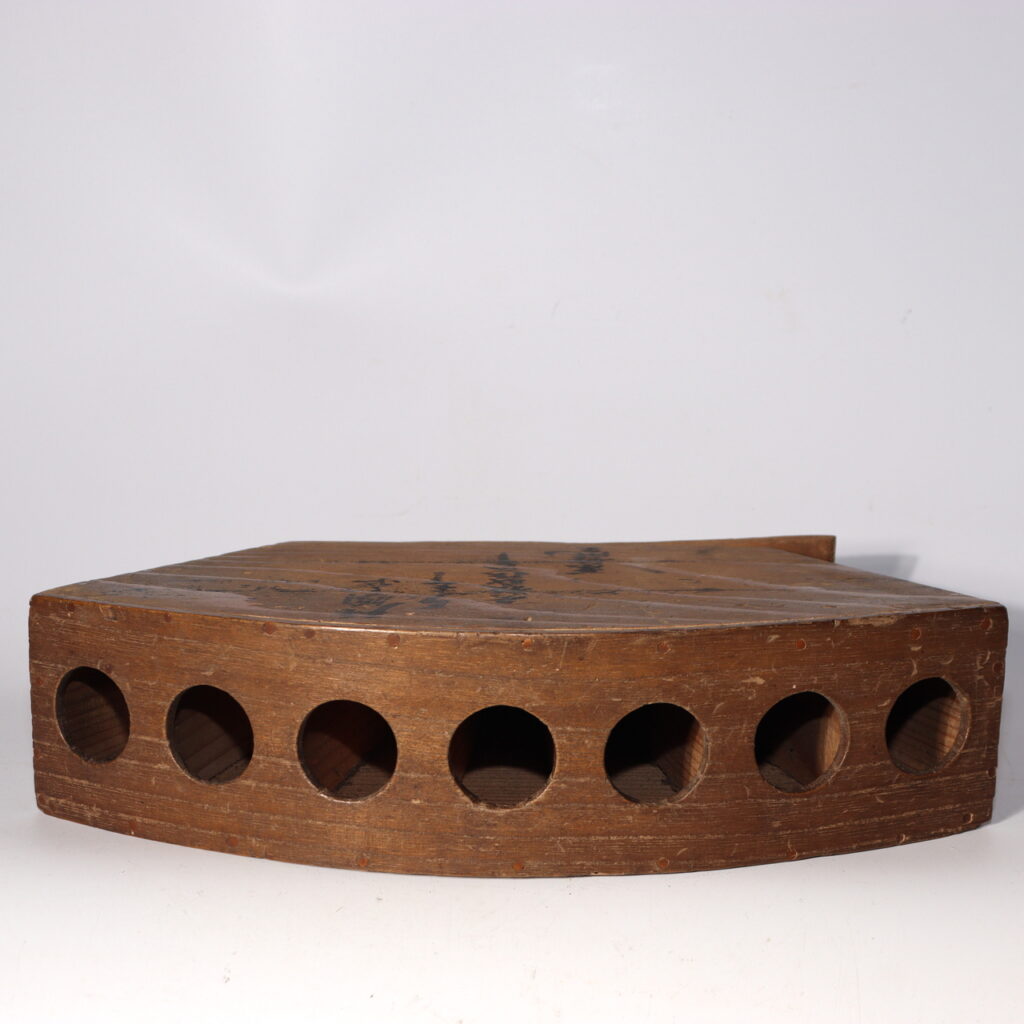
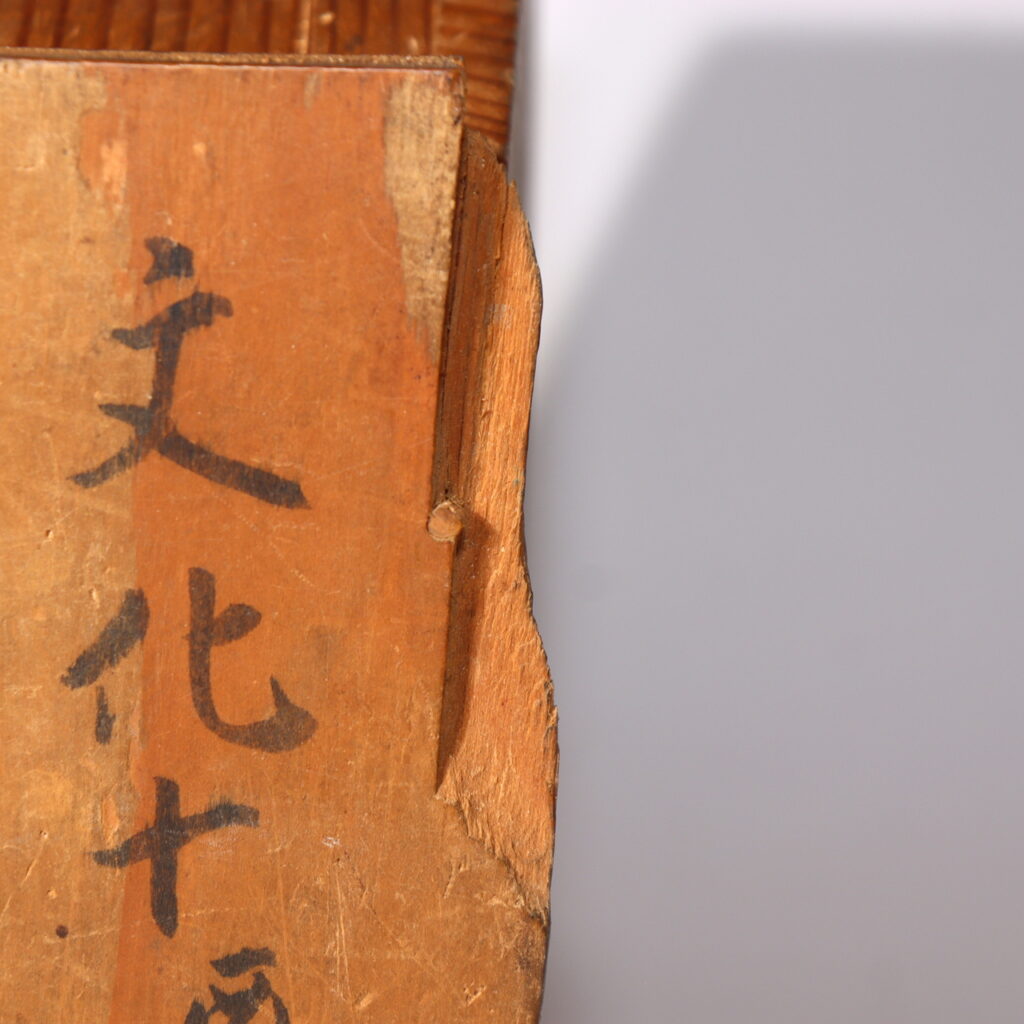
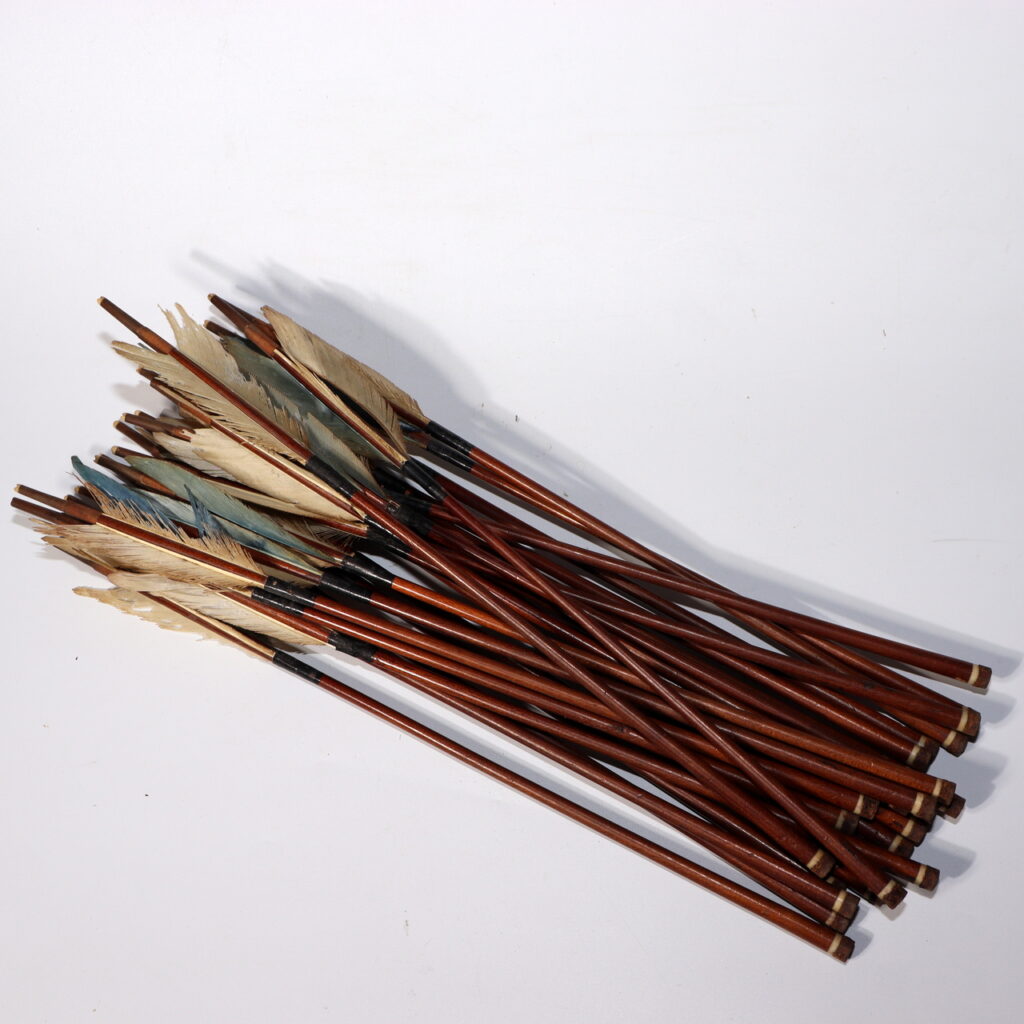
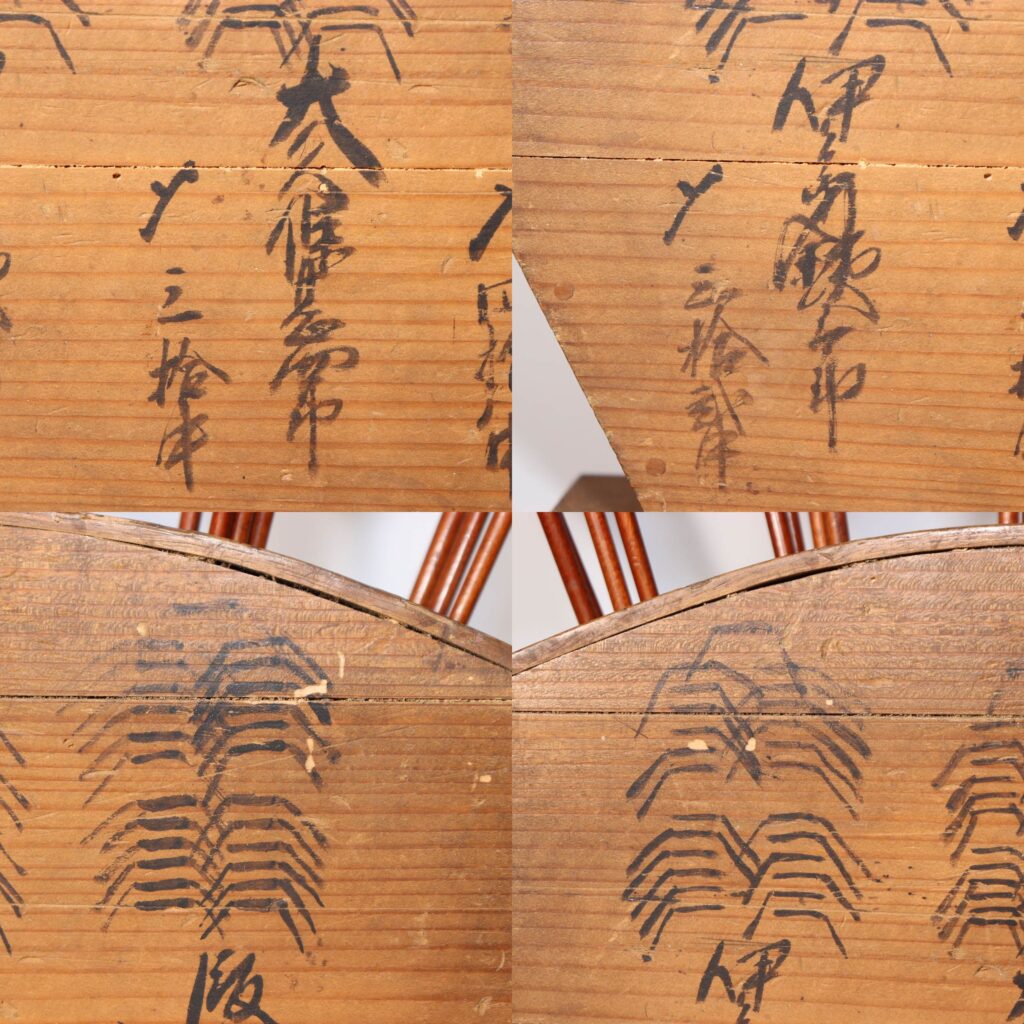
In the refined world of Japanese antiques, few objects bridge martial tradition and decorative artistry as gracefully as this piece—a fan-shaped Ebira (quiver) from the late Edo period, complete with 25 miniature arrows. Dated to Bunka 10 (1813), it is a delicate relic steeped in ritual, symbolism, and historic craftsmanship.
The Story Behind This Artifact
Ebira, or traditional quivers, were essential tools in the lives of samurai. Yet this particular example diverges from battlefield utility. Its fan shape and miniature arrows suggest a ceremonial role—likely used for decorative or spiritual purposes within a samurai residence, Shinto shrine, or cultural celebration.
The wooden surface bears elegant handwritten calligraphy in black ink, including the historical year, providing not only artistic flair but concrete historical provenance. It invites us into a world where even martial tools became canvases for expression and reverence.
Highlights and Unique Features
- Antique fan-shaped Ebira, carved from wood, showcasing graceful curves and subtle wear
- 25 handmade arrows, each with natural feather fletching and slight variation, emphasizing artisanal individuality
- Calligraphy includes the date Bunka 10 (1813)—a rare and verifiable historical mark
- Short arrow length implies non-functional usage, intended for ritual or decorative display
- Impeccably preserved patina offers authenticity without compromising visual appeal
For collectors of samurai weaponry, Japanese archery (Kyudo), or Edo-period artifacts, this piece offers historical insight and aesthetic charm in equal measure.
A Valuable Find for Global Collectors
What makes this piece particularly desirable is its dual identity: it is both a remnant of Japan’s martial past and a decorative object reflecting refined domestic culture. In recent years, the global market for Japanese Edo-period artifacts, especially related to samurai culture, has surged—drawing interest from historians, designers, and enthusiasts alike.
The intricate arrows and fan-shaped wooden quiver reflect the same sensibility found in kintsugi, Meiji ceramics, and other Japanese traditional crafts, where beauty resides not only in perfection but in symbolic meaning and quiet dignity.
Conclusion and Where to Find It
This Ebira and arrow set is more than an antique—it is a window into Japan’s ritual and domestic samurai culture. For those seeking a conversation piece, a cultural study object, or an elegant addition to a curated space, it stands as a rare and precious find.
If sold out, you can explore other one-of-a-kind items in our collection:
🔗 Browse more Japanese antiques at Koedo Sun Art